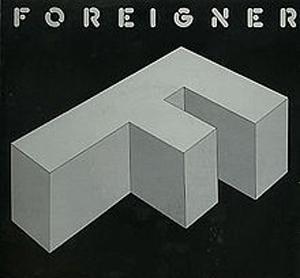‘Bloody Foreigners’ and English April 23, 2013
Author: Beach Combing | in : Actualite, Medieval, Modern , trackbackThe British are often characterized as being insular, stand-offish and suspicious of outsiders. And Beach has recently been fascinated by how this parochialism (which is at least partly based in fact) has left traces in the English language and more particularly in the words that English uses for nationality.
It should be said, first of all, that nationality words are a bit of a drag in English. God help you if you have to learn them as an adult. There are three types. There are the adjective-noun nationality words (typically, though not always, in -an): e.g. ‘I met two Germans’; ‘I drive a German car’. There are the adjective nationality words: e.g.’ I met two French students’. Then, last, there are noun nationality words: ‘I saw two Finns’.
The first two categories are unremarkable, though the second category is inefficient: it is irritating that you cannot say ‘I saw two French’ in English but have to fish around for a noun. However, the third category is a hangover from the times when everyone from outside the island was an enemy. Indeed, the very taste of nationality nouns is unpleasant on the tongue.
For example, ‘I saw two Spanish people’ evokes (at least to this blogger) deep shadows in the plaza, wide-hipped women with perfumed black hair and oranges drooping from trees. If you say, instead, ‘I saw two Spaniards’ the image is of men with funny helmets and sabres on burning wooden ships screaming ‘El Rey’. Almost all nationality words shift in a similar direction. So ‘Turk’, ‘Arab’, (the particularly unpleasant) ‘Jew’, ‘Swede’… This is exceptionally clear if you compare the adjective ‘foreign’ with the noun ‘foreigner’. ‘My girlfriend is foreign’ has a very different sense from ‘my girlfriend is a foreigner’.
In fact, it is no accident that in these more enlightened times nationality nouns tend to be restricted to newspaper headlines and grousing: they are linguistic fossils for the most part. Nor is it an accident that the only new nationality nouns to emerge in the last century are the nick-names given to enemy combatants or enemy neighbours: Argies, Frogs, Gerries, Huns, Poms, Wops etc etc.
Beach’s question is the following. Is English unique in this respect? Are other languages similarly offensive in their nationality words/nouns? The Latin languages Beach knows best do not particularly tar with words in this way. The Germanic languages perhaps a little more but not, surely, to the extent of their distant cousin, English: drbeachcombing AT yahoo DOT com
***
30 April 2013: Antony Poulton-Smith writes: Enjoyed the post on the ‘Foreigners’. When my forthcoming marriage to an American lady was announced her friends and colleagues offered their congratulations all asking about this mysterious man. Two opinions changed quite quickly when they found out she was marrying “an English” as both the Irishman and the Scotsman put it. Your post reminded me of this when highlighting the French / Frenchman problem – for both Celts used “an English” rather than “an Englishman” as a sneer – and as it was clearly meant as such. I’d like to raise a second point. My interest in etymology has resulted in a number of books on the origins of place names. It might be of interest to learn another Celtic group, the Welsh, is a name coined by the Saxons, who gave Old English. To the Welsh their home of Wales is known as Cymru. “Wales” is an English word derived from the Old English for ‘foreigner’. Fred from Chinesefolktales: Dr. Beach chances are you might already know about this. If not, you might be amused by Chinese names of European & Western nations [DB: no!]. (1) England = 英国 (yingguo, “Nation of the Brave,” “Valiant Nation, etc.) (2) America = 美国 (meiguo, “Nation of beauty,” “Beautiful Nation,” etc.) (3) Germany = 德国 (deguo, “Nation of Morality,” “Ethical Nation,” etc.) (4) France = 法国 (faguo, “Nation of Laws,” “Lawful Nation,” etc.) Others are rendered purely phonetically and the sequential characters do not provide a meaning other than forming a foreign name. Examples: (5) Scotland = 苏格兰 su ge lan and my native land: (6) Canada = 加拿大jia na da Re: “German,” “Germans,” etc., I still get students, some of whom are America-born and should know better, write “Germen” for a plural. Thanks Fred and Anthony!
31 Oct 2016: Alan L writes ‘First of all, I’d like to comment on Anthony Poulton-Smith’s contribution, where he says that “I still get students, some of whom are America-born and should know better, write “Germen” for a plural”. That’s actually not as silly as it sounds! The name was first adopted by the Romans when a bunch of Tungrians (a west Germanic people) self-identified as “Germani”; so if we assume a purely Germanic etymology and ignore silly attempts to link it to the Latin word “germanus” (cousin), we see that it is composed of two words” “ger” (a short stabbing spear) and “man” (the Tungri said “we are spear-men”). The word “ger” also appears in personal names such as the Norse Asgeir, meaning “spear of god” (i.e. Woden/Odin). The word “deutsch” derives from the word “theod”, which simply means “people”. The Anglo-Saxon language called itself the “theodisce”, which came to mean “the vulgar tongue” or “language of the (common) people” after the Norman invasion. I believe that the word “inuk” (singular of “inuit”) also simply means “human being”. Every language has slang words for foreigners. I have heard British people referred to as “rosbifs” in France and “Inselaffen” (island apes) or (more flattering) “Inselgermanen” in Germany.



